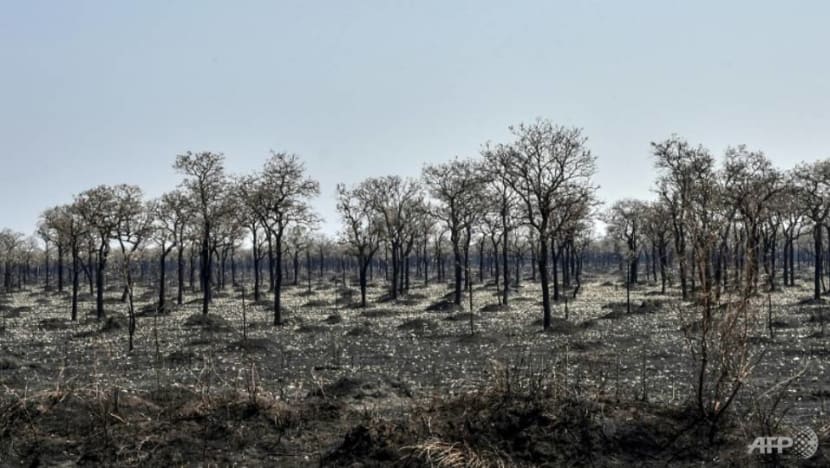Fashion label Chanel invests US$25 million in new climate adaptation fund

Bolivia saw the third-highest level of forest destruction in 2020. (File photo: AFP/Aizar Raldes)
PARIS: French fashion house Chanel is backing a new climate adaptation fund that aims to raise US$100 million by 2025 to invest in projects to promote sustainable agriculture, protect forests and support small-scale farmers in developing countries.
The Landscape Resilience Fund (LRF) was developed by green group the World Wildlife Fund (WWF) and Swiss-based social enterprise South Pole, and is starting with US$25 million from luxury brand Chanel and US$1.3 million from the Global Environment Facility.
An independent non-profit, the LRF aims to attract a further five to 10 additional investors to help finance small businesses and projects that foster climate-resilient agriculture and forestry practices, and protect natural systems.
Martin Stadelmann, a senior director at South Pole, which will manage the LRF, said that it was a pioneering way for a major multinational company to invest in adaptation to climate change.
"As (with) other companies, some of their supply chains are under threat because of climate change," he told the Thomson Reuters Foundation.
One million animal and plant species are at risk of extinction due to humankind's relentless pursuit of economic growth, scientists warned in a 2019 landmark report on the devastating impact of modern civilisation on the natural world.
READ: Brazilian Amazon deforestation hits record for May
Environmentalists largely blame the production of commodities like palm oil, beef and minerals for the destruction of forests, as forests are cleared for plantations, ranches, farms and mines.
Cutting down forests has major implications for global goals to curb climate change, as trees absorb about a third of the planet-warming emissions produced worldwide, but release carbon back into the air when they rot or are burned.
Forests also provide food and livelihoods, and are an essential habitat for wildlife.
READ: Carbon dioxide in the air at highest level since measurements began
Better conservation, restoration and management of natural areas, such as parks, forests and wildernesses, is seen as key for nations to meet targets to reduce planet-heating emissions and reverse the loss of plant and animal species.
Global annual spending to protect and restore nature on land needs to triple this decade to about US$350 billion, a United Nations report said in May, urging a shift in mindset among financiers, businesses and governments.
Presently, only about 5 per cent of total climate finance goes to adapting to a warmer planet, with most of that coming from public funds, South Pole officials said.
"The fund really targets the 'missing middle' where there is currently no commercial financing," said Urs Dieterich, a fund manager at South Pole and managing director of the LRF.
READ: Last resort: Seeds from nearly 5,000 wild plant species kept safe in a South Korean mountain
The fund will provide cheap loans and technical assistance to small businesses that work with smallholders in vulnerable landscapes – such as cocoa or coffee growers and rattan harvesters – and help them access better farming inputs, such as drought-resistant seeds, as well as training and finance.
Repaid loans will be reinvested in other small businesses working on climate adaptation.
Projects can apply online for funding or approach the LRF directly, and will be assessed for their climate change exposure and adaptation plans. Their progress will be tracked by local staff and published in annual reports, fund officials said.
"There has never been a more critical time for the private sector to step up and help close the investment gap needed for effective climate adaptation," Andrea d'Avack, chief sustainability officer at Chanel, said in a statement.
The LRF offers an opportunity to "explore different approaches that could help advance changes in our own supply chain and business practices", d'Avack added.










